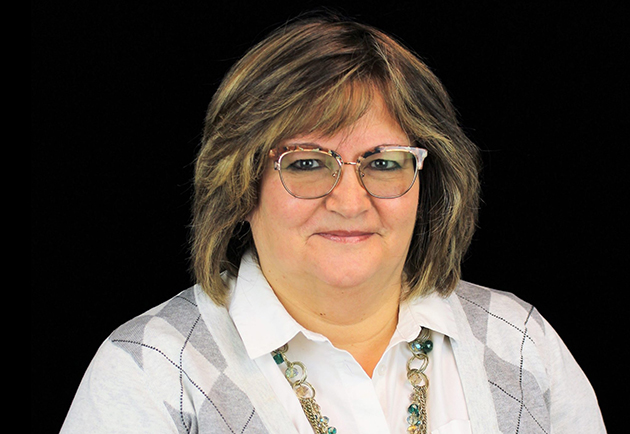By Chevi Rabbit, Local Journalism Initiative Reporter
(ANNews) – Rachelle Venne is a proud Metis woman and the CEO Institute for the Advancement of Aboriginal Women with experience in the non-profit, corporate, and government sectors.
She was a member of End Poverty Edmonton’s Aboriginal Roundtable and Implementation Road Map Team and one of six Canadian NGO delegates selected to attend the UN Commission on the Status of Women in 2017.
Since March 5, 2020, Venne is the chair of the Alberta Joint Working Group on Missing and Murdered Women and Girls. In this capacity she has engaged with Indigenous community members, agencies, and organizations, and developed advice and recommendations to inform government actions.
The report contains many recommendations for the government but also for the important role of everyday Albertans. “It’s nice to see what the government will do and provide resources and a clear path, but the work is going to be done in the communities with a lot of like-minded people moving it forward,” said Venne.
She added that all Albertans will have their piece to do to create the much-desired social change of protecting missing and murdered Indigenous women, girls, and 2SLGBTQQIA+ people.
There is so much work to be done, including people you might not think of “from the pharmacist to the postman, everyone needs be aware of MMIW and be aware of what they can do,” said Venne.
The working group started on March 5, 2020, to December 23, 2021, and on January 5, 2022, the working group submitted their final report on missing and murdered Indigenous women, girls, and 2SLGBTQQIA+ people.
Venne was joined on the working group by three other Indigenous women, Josie Nepinak, executive director of the Awo Taan Healing Lodge, in Calgary; Lisa Higgerty, director of the Hinton Friendship Centre and co-chair of the Métis Women’s Council on Economic Security; and Suzanne Life-Yeomans, co-chair of the First Nations Women’s Council on Economic Security.
The MLAs that were involved in the working group included MLA Tracy Allard, MLA Laila Goodridge, MLA Whitney Issik, and MLA Martin Long.
In an interview with ANNews, MLA Martin Long for West Yellowhead explained, “The experience I had working on the recommendations was eye-opening, humbling and life-changing. There were so many topics that we covered where the amazing Indigenous women who were part of the group graciously and patiently shared their histories, lives, and perspectives.”
“I have historically tried to understand the conversations I have had with Indigenous people through my own perspective. I learned through this working group that I can never truly understand unless I am considering the issues and conversations from an Indigenous perspective,” added Long.
He said, non-Indigenous communities should “take time to build relationships with our Indigenous brothers and sisters and be open to learning what historical events and circumstances have taken place.” Also understanding the Indigenous perspectives and shared histories, added Long.
“Taking the time to build a relationship with our Indigenous brothers and sisters and by being open to learning what historical events and circumstances have taken place to lead to the Indigenous perspectives that are shared with us,” added Long.
“The report contains over 100 recommended actions, and in the coming months the government will have to review and come out with their strategy… It is very comprehensive; the report covers many departments and stakeholders,” said Venne.
According to the GOA website, “Indigenous women in Canada are three times more likely to be victims of violence than non-Indigenous women. In Alberta, 206 Indigenous women were murdered between 1980 and 2012 – accounting for 28% of all female homicide victims in that time period.
“By addressing the calls for justice, we can build an Alberta where Indigenous women, girls, and 2SLGBTQQIA+ peoples are valued, respected, and are safe to lead lives filled with hope and promise.”
Venne explained there are many people that want to be part of the solution when it comes to missing and murdered Indigenous women, girls, and 2SLGBTQQIA+ people but they just don’t know where to help and how to begin.
She said, the work for raising awareness and supports regarding MMIW shouldn’t add any more pressure to women, especially women who are raising their families. “Women are working crazy hours, doing everything they can. These women can reach out to organization such as IAAW and other support groups that are doing the work on MMIW, like you,” said Venne (referring to me, Chevi Rabbit).
Venne is about spreading positivity through IAAW and the Esquao Awards – the largest gathering to honour Aboriginal Women in Canada. It is unique in that the community nominates the women, and IAAW coordinates the ceremony to honour them.
Venne says that through the Esquao Awards, “we are promoting positive stories and the strength, and beauty of women.”



Be the first to comment on "Rachelle Venne talks about the new MMIW Report and the role of everyday Albertans"